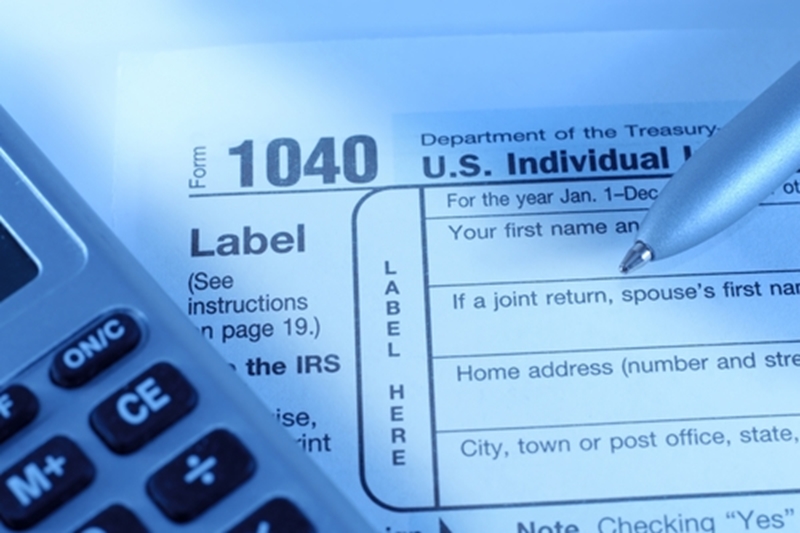Are You Using These Money-Saving Tools?
While we always say we want to save more and spend less, these simple-sounding goals are easier said than done. The biggest obstacle to achieving these outcomes is often something as basic as not knowing exactly how. A 2014 survey by the National Foundation for Credit Counseling revealed that only about 39 percent1 of Americans maintained a budget. In addition, when asked what their primary source of help would be when it came to financial trouble, only 14 percent said they would use “a do-it-yourself tool to help me pay down my debt myself.” While some may assume that such tools are prohibitively expensive or complicated, there are several programs and services out there that make financial planning and spending reduction easy.
“Only 40 percent of Americans maintain a budget.”
Budgeting
There are tons of methods to keeping track of your spending habits. For some, a simple pen and paper spreadsheet is the most effective method. As technology has evolved, budgeting systems have become more creative and extremely intuitive. The hardest part of getting these systems to work is actually plugging in the numbers. One of the most acclaimed budget software tools is You Need a Budget, or YNAB. Forbes contributor John Wasik extolled the virtues2 of YNAB, calling it perhaps the best money-saving tool around.
YNAB’s strategy focuses on saving for essential expenses, including liquid savings. Each dollar is “given a job” and put toward a necessary payment like rent, food or interest on debt. By showing you what necessities you need to get out of the way first, YNAB makes it easier to see how much money you really have to spend on non-essential purchases. It also makes incremental saving second-nature. YNAB isn’t the only budget software out there, being just one in a crowded field of similar options like Mint and Quicken. Most of these modern tools allow for constant access on your smartphone and even integration with your online banking provider for real-time balances. While not all of these programs are free, the small price they cost will easily be made up for in savings.
Personal payments
Ever had to split a bill at a bar or restaurant with several people, and no one has cash? Or have a newly emancipated college student who needs some extra cash for “activities”? It doesn’t have to be so difficult anymore thanks to peer-to-peer payment app Venmo. When you and your friends have this app on your smartphone, you just have to plug in your bank or debit card information and either send or request money. There is no fee associated with sending or receiving money, and it’s trusted as a very secure platform. Any amount sent is credited to the other person’s bank account within a day or two. Venmo makes splitting bills and rent with roommates incredibly easy. You may find yourself saving on ATM fees as well thanks to a lesser need for cash.

Tax season is a dreaded time of year. If you’re already fretting about gathering receipts, poring over bank statements and attempting to understand complex forms, there is one option that may be more efficient and cheaper than hiring a professional. One of the most popular tax preparation services is TurboTax, and it can be a lifesaver when the April 15 deadline gets too close for comfort. Wasik explained how TurboTax has the ability to determine tax status by asking several “interview style” questions. It also facilitates electronic filing and aims to provide the biggest refund possible when it’s all said and done. If you have a pile of rules to wade through on the path toward completing your taxes this year, TurboTax could end up saving you plenty of time, along with a nice chunk of change in the form of a rebate.
Personal finance podcasts
For a more general source of knowledge as well as entertainment, listen to one of the many personal finance-related podcasts out there. U.S. News & World Report listed some of the best and most insightful3 programs available, each of which are hosted by credentialed and experienced financial and business professionals. They include Dave Ramsey, a widely acclaimed personal finance guru whose podcast “The Dave Ramsey Show” focuses on living debt-free. “The Money Girl” with Laura Adams is another good general interest personal finance program.
Some podcasts are geared toward specialty audiences. “Like a Mother” with Emma Johnson deals with living a financially responsible life with the added challenges brought about by motherhood. Some, like the more informational, economic theory-based “Freakonomics Radio” skew more toward the journalistic side. But these and more will help provide a more nuanced, broad-spectrum view of the personal finance picture. They may not exactly make you that much more wealthy, but if anything, will allow you to learn something on your way to work.
The first thing you should focus on if you’re looking to save money is developing a budget, if you have not already. Once you’ve done that, you can look into various apps, websites, and podcasts to help you become more fiscally responsible and knowledgeable. With so many tools at the tips of your fingers, all it takes is a little research into which ones you want to use
The views expressed by the articles and sites linked in this post do not necessarily reflect the opinions and policies of Cash Central or Community Choice Financial®.
Sources:
1Poll, Harris. (2014). Retrieved from: https://www.nfcc.org/wp-content/uploads/2019/05/NFCC_2014-FinancialLiteracySurvey_FINAL.pdf
2Wasik, John. (2015, Oct 23). Retrieved from: https://www.forbes.com/sites/johnwasik/2015/10/23/four-powerful-money-tools/?sh=5ea938543990
3LaPonsie, Maryalene. (2022, Feb 17). Retrieved from: https://money.usnews.com/money/personal-finance/saving-and-budgeting/articles/best-personal-finance-podcasts-to-listen-to

 You must have JavaScript enabled to use this site.
You must have JavaScript enabled to use this site.
 For a better user experience consider upgrading your browser.
For a better user experience consider upgrading your browser.

